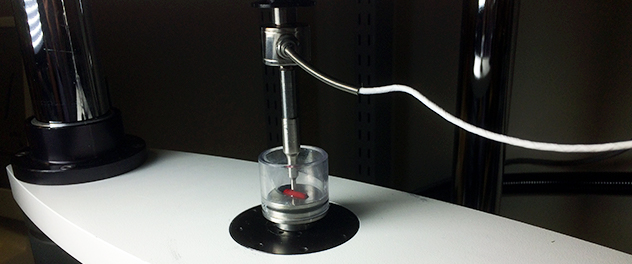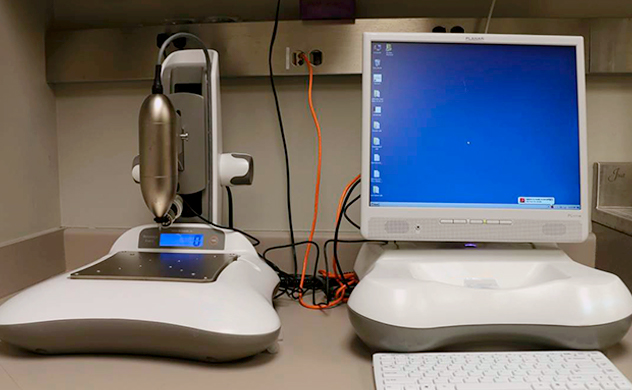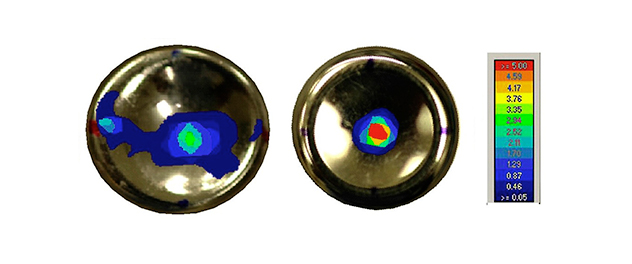Mechanical Testing: Nanoscale to Macroscale
The core is equipped to perform material property testing of materials soft to hard, which includes biologic tissues and engineering materials. The laboratory can perform basic compression, tensile and torsion testing; cyclic fatigue testing; evaluation of viscoelastic response (quasistatic and high frequency); hardness testing (both conventional and nanoindentation); and application of complex loading on cadaveric specimens and biomedical devices.
Testing services have been used for a wide array of projects. Examples include evaluating aortic leaflet stiffness, fatigue properties of pelvic mesh materials, dynamic stiffness of imaging phantom model materials, pull-out resistance of orthopedic hardware, hardness of trabecular bone in animal models and compressive properties of tissue-engineered cartilage.
Servohydraulic loading frames
Testing may be performed on one of three servohydraulic biaxial (axial/torsional loading) material testing machines:
- Model 312 (MTS Systems Corp.)
- Model 858 Mini Bionix II with environmental chamber (MTS Systems Corp.)
- Model 1321 (Instron)
With a large assortment of load cells and grip accessories available, these systems have been used for strength testing of soft tissue repairs, assessment of bone-implant micromotion, characterization of engineering materials, three- and four- point bend testing of long bones, and much more.

ElectroForce 3200 test system performs low- and high-frequency loading
Dynamic mechanical analysis
The core operates an ElectroForce 3200 electromechanical testing system (Bose Corp.) with dynamic mechanical analysis (DMA) capabilities, ideal for testing soft materials. This machine has been used to evaluate hydrogel stiffness; test mechanical properties of muscles, tendon and nerve; and perform indentation testing on articular cartilage.
Nanoindentation
The core's Hysitron TI 950 TriboIndenter can perform nanoindentation testing of materials. This service has been used to examine intrinsic properties of cortical and trabecular bone, as well as engineered polymer materials.

BioDent test system for reference point indentation testing of bone
Reference point indentation
The core houses a BioDent Hfc hardness testing system (Active Life Scientific) for rapid assessment of bone properties using the reference point indentation (RPI) technique. This system is capable of testing bone properties of large and small research animals.
Digital image correlation
Full strain and deformation fields of objects can be captured with the laboratory's digital image correlation (DIC) camera system (ARAMIS 3D Real Time 4M). This system is well-suited for evaluating local displacement in soft tissue repairs and micromotion of orthopedic implants.
Custom test systems
The laboratory also maintains several pieces of custom-built test equipment capable of testing cyclic wear of articular implants and simulating kinematics of musculoskeletal joints.
Sensors and instrumentation
An extensive variety of sensors are available for measuring forces (single axis to six-component), pressures (Tekscan and fiber-optic sensors), and linear displacement and angular rotations.

Thin-film Tekscan sensors are used for assessing joint contact pressure.